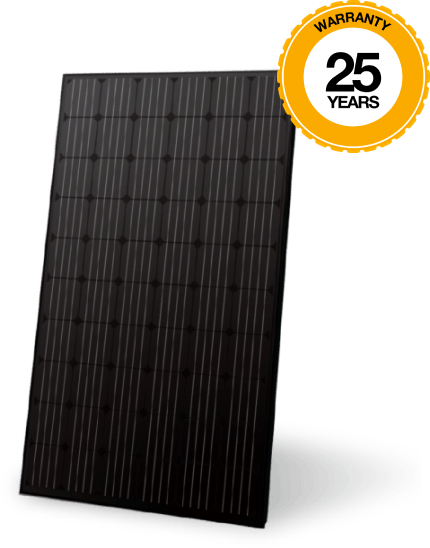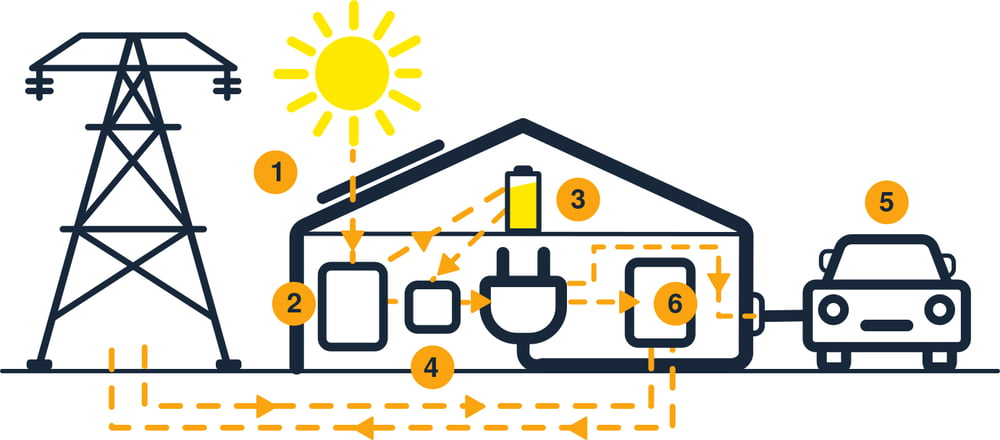
The Future of Energy: Why PV Panels Are on the Rise
In the pursuit of sustainable and renewable energy sources, solar photovoltaic (PV) technology has emerged as one of the most promising solutions to combat climate change and secure a greener future.
Solar PV systems convert sunlight directly into electricity, offering an environmentally friendly and cost-effective alternative to traditional fossil-fuel-based energy generation.
Solar PV’s success lies in its ability to tap into an abundant, clean, and inexhaustible source of energy: the sun. The process involves the use of photovoltaic cells, typically made from silicon, which absorb photons from sunlight and liberates electrons, generating an electric current. These cells are organised into modules, combining multiple modules to create solar panels. The panels can be installed on rooftops, in open fields, or integrated into building facades, making solar PV a versatile and scalable energy solution.
One of the key advantages of solar PV is its sustainability. Unlike fossil fuels, solar energy production does not emit harmful greenhouse gases, contributing significantly to mitigating climate change and reducing our carbon footprint. As technology advances, solar PV’s efficiency and cost-effectiveness continue to improve, making it an increasingly attractive option for energy generation worldwide.
The adoption of solar PV has been rapidly growing across the globe. Governments and private sectors are investing in solar energy projects to meet renewable energy targets, bolster energy security, and create job opportunities in the clean energy sector. Moreover, individuals are increasingly embracing solar power to take control of their energy consumption, reduce electricity bills, and contribute to a more sustainable future.
Beyond environmental and economic benefits, solar PV also promotes energy independence. Solar installations enhance grid resiliency and reduce the risk of widespread blackouts during emergencies or natural disasters by decentralising power generation and enabling local energy production
However, challenges remain for the widespread adoption of solar PV. Issues such as intermittency (the sun’s availability is dependent on time and weather), energy storage, and the environmental impact of manufacturing and disposing of solar panels require innovative solutions and ongoing research.
In conclusion, solar PV technology is a beacon of hope in the fight against climate change and the quest for sustainable energy sources. Its remarkable growth in recent years demonstrates its potential to reshape the global energy landscape. Continued advancements and supportive policies and investments will undoubtedly pave the way for a brighter, cleaner, and more sustainable future powered by the sun.

- Solar panels generate electricity from UV lighting even in all weather conditions.
- The Inverter changes the current from DC to AC, so that it can be used in your home.
- Any surplus energy that is not used will be stored in your home battery storage for later use.
- The Consumer Unit Board controls the distribution of solar energy.
- This green energy is then used to power your home or recharge your electric vehicle when needed.
- Your Generation Meter will calculate how much energy you have produced.
Save heavy on your power bills
We install world’s top solar brands
To give you the best solar experience











Save heavy on your power bills
Full-Service PV Installations Across the UK
Solar4Good provides comprehensive solar PV systems to homes and businesses across the UK. Our photovoltaic panels convert sunlight into usable power efficiently, reducing your grid usage and supporting your move to renewable energy.
We handle design, supply, and installation of PV panels, including commercial solar PV panels for larger applications. We also offer support for pv maintenance, performance checks, and expansion planning.
Benefits of Choosing Solar4Good Nationwide:
- End-to-end setup of solar PV systems for all property types.
- Local installers trained in pv panel integration and safety.
- Optional pv maintenance services for long-term performance
Get started with Solar4Good’s PV solutions—built for performance across the UK.
Frequently Asked Questions
Photovoltaic panels convert sunlight into electricity. They generate direct current (DC) power, which is then converted into alternating current (AC) by an inverter so it can be used in your home or business.
Several factors influence PV panel prices, including panel efficiency, brand, warranty, installation complexity, and additional components like batteries and inverters. Choosing high-quality panels and professional installation ensures long-term reliability and performance.
A PV panel installation typically includes site assessment, system design, panel mounting, wiring, inverter PV solar connection, and system testing. Additional features like battery storage can enhance energy efficiency. Solar4Good is a certified provider offering expert installation to ensure maximum system performance.
PV solar panels provide clean, renewable energy, reduce dependence on the grid, lower carbon emissions, and help save on energy bills. They also contribute to a sustainable future by reducing reliance on fossil fuels.
Selecting reliable PV panels installers is essential for system efficiency and longevity. Look for certified and experienced professionals with positive customer reviews. Solar4Good is a certified and trusted provider ensuring high-quality installations tailored to your energy needs.
Yes, PV solar panels work in various weather conditions, including cloudy days. While efficiency may be slightly reduced with less sunlight, modern photovoltaic panels are designed to generate power in both sunlight and daylight.
Yes, PV panels installation is highly versatile. Whether you have a residential home, commercial property, or an industrial facility, solar systems can be customized to suit your specific energy requirements. Contact the Solar4Good team to assess your property for the best solar solution.
In urban areas like London, factors such as roof space, shading from nearby buildings, and structural assessments play a key role. Solar4Good’s expert team specializes in installing solar systems in cities, ensuring optimal energy output by making the best use of the given space and conditions.
Yes, an inverter PV solar system is essential to convert the direct current (DC) electricity generated by photovoltaic panels into alternating current (AC), which is used to power homes and businesses. Solar4Good provides complete solar solutions, including high-quality inverters.
The PV panels cost depends on various factors like panel efficiency, installation complexity, and additional system components. A proper evaluation by Solar4Good’s expert team can help you plan your solar investment wisely.
To start your PV panel installation, reach out to Solar4Good’s expert team. They will guide you through the entire process, from site assessment to system design and installation, ensuring you get the best solar solution for your needs.




